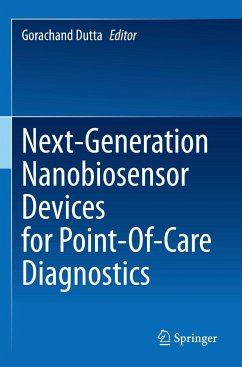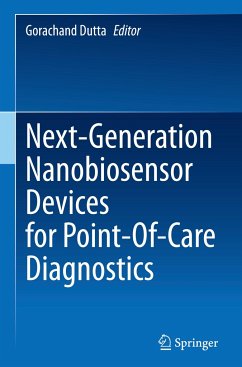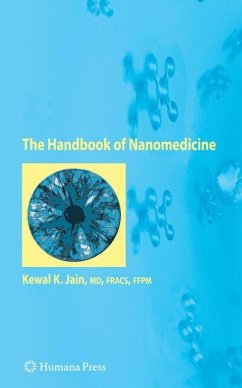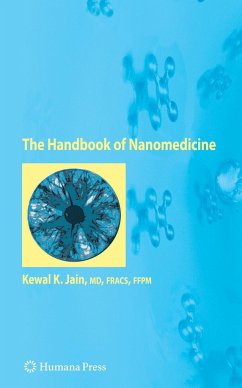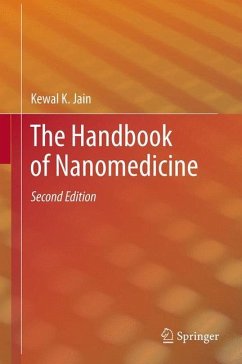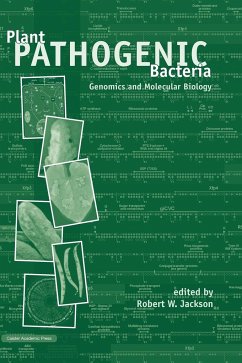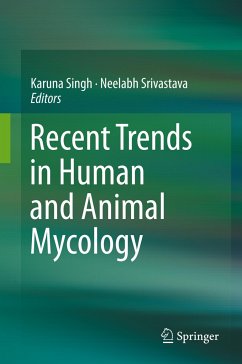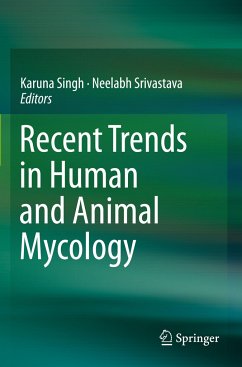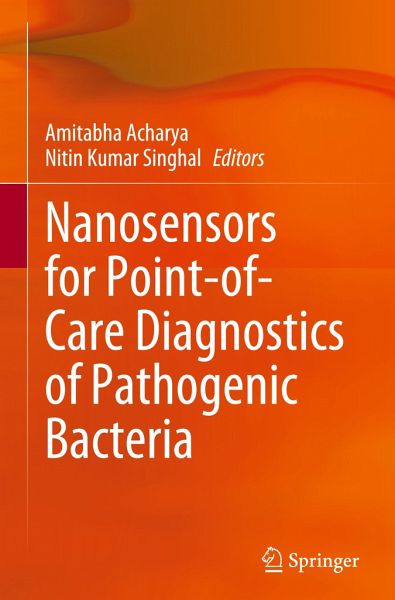
Nanosensors for Point-of-Care Diagnostics of Pathogenic Bacteria

PAYBACK Punkte
64 °P sammeln!
This book comprehensively reviews various nanodiagnostic approaches for the detection of bacterial pathogens. The initial chapter of the book discusses receptors present on bacterial cell surfaces that can be targeted for diagnostic applications. The book then presents different fluorescent nanoparticle systems that are used for bacterial detection. Further, it covers surface plasmon resonance (SPR), ELISA, and QCM-based nanosensors to detect pathogenic bacteria. It examines different nanosensors used for the microfluidic-based detection of bacterial pathogens, including microfluidic paper-bas...
This book comprehensively reviews various nanodiagnostic approaches for the detection of bacterial pathogens. The initial chapter of the book discusses receptors present on bacterial cell surfaces that can be targeted for diagnostic applications. The book then presents different fluorescent nanoparticle systems that are used for bacterial detection. Further, it covers surface plasmon resonance (SPR), ELISA, and QCM-based nanosensors to detect pathogenic bacteria. It examines different nanosensors used for the microfluidic-based detection of bacterial pathogens, including microfluidic paper-based analytical devices (miPADs), lateral flow devices, and miniaturized PCR devices. The book also covers the current electrochemical, voltammetric, and amperometric nanosensors-based microorganism recognition approaches. Lastly, the book summarizes the current challenges and the futuristic application of nanosensors to detect bacterial pathogens. This book is an invaluable resource for all medical laboratories and clinical institutions dealing with infectious diseases.





